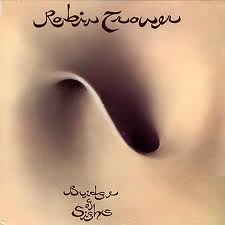
I saw a light, just up ahead
But I couldn’t seem
To rise up from my bed
I’m not alone, then I am
People seem
To think I’m Superman
But I watch for the love
I’m livin’ in the day of the eagle
Eagle, not the dove
It’s like a weight that brings me down
If I don’t move, I’m on the ground
It’s in my mind, it’s in my soul
It’s tellin’ me the things I can’t be told
It’s a watch for the love
Livin’ in the day of the eagle
Eagle, not the dove
‘Nother day, ‘nother night
I want to love, they want to fight
I need the time, I’ve got to be alone
I’ve got to meet a lover on my own
I watch for the love
Livin’ in the day of the eagle
Eagle, not the dove

References
Uploaded by GoinToSleepBIATCH on Aug 18, 2009
Wikipedia: Bridge of Sighs (album)
Bridge of Sighs is the second solo album by the English guitarist and songwriter Robin Trower. It was released in 1974.
The album was produced by organist Matthew Fisher, formerly Trower’s bandmate in Procol Harum. Acclaimed Beatles engineer Geoff Emerick was this album’s sound engineer.
The album was named after the Bridge of Sighs in Venice, Italy.
Bridge of Sighs, his second album after leaving Procol Harum, was a breakthrough album for Trower. Songs from this album, such as “Bridge of Sighs”, “Too Rolling Stoned”, “Day of the Eagle”, and “Little Bit of Sympathy”, have become live concert staples for Trower.
Bridge of Sighs (Chrysalis 1057) reached #7 in the United States during a chart stay of 31 weeks. It was certified Gold on 10 September 1974. Different printings of the original album cover had the front image inverted.
Wikipedia: Robin Trower
Robin Trower (born Robin Leonard Trower, 9 March 1945, Catford, South East London, England) is an English rock guitarist who achieved success with Procol Harum during the 1960s, and then again as the bandleader of his own power trio.
Click HERE to read more from William Belle
Article viewed at: Oye! Times at www.oyetimes.com

Be the first to comment